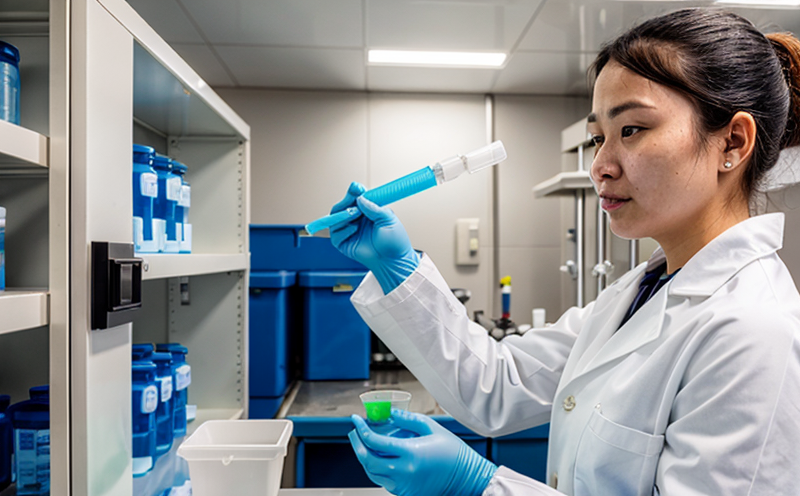USP Clostridium difficile Detection Testing
In the pharmaceutical sector, ensuring product safety and quality is paramount. Among the numerous tests conducted to ensure drug purity, one critical procedure involves detecting Clostridium difficile, a bacterium that can cause severe gastrointestinal infections. This service focuses on providing accurate USP Clostridium difficile detection testing which ensures compliance with United States Pharmacopeial (USP) standards.
The demand for this specific test arises from the increasing prevalence of Clostridium difficile infections in healthcare settings. The bacteria can be introduced into a production environment through various means, such as contaminated raw materials or equipment used during manufacturing processes. Therefore, pharmaceutical manufacturers must adhere to stringent guidelines set forth by regulatory bodies like USP to guarantee their products are free from harmful contaminants.
The testing process involves several steps designed to identify potential Clostridium difficile spores in a sample taken from the production environment or raw materials. Initially, samples undergo preliminary screening using culture-based methods which allow for isolation and growth of the bacteria. However, culture-based approaches can take days to yield results and may not always detect viable spores.
To address these limitations, advanced molecular diagnostic techniques have been developed, such as polymerase chain reaction (PCR) assays. These tests provide rapid detection by targeting specific genetic sequences unique to Clostridium difficile. This approach ensures more efficient identification of the pathogen early in the production cycle.
Following detection via PCR or other suitable methods, any positive samples must undergo further characterization to determine their potential impact on product quality and safety. This may involve additional laboratory analyses aimed at quantifying spore levels present within a given sample. Accurate quantification is crucial because even low concentrations of Clostridium difficile can pose significant risks if not properly controlled throughout the manufacturing process.
The results from these tests are then compiled into detailed reports that provide actionable insights for improving hygiene practices or adjusting production protocols where necessary. By implementing robust USP Clostridium difficile detection strategies early in product development, pharmaceutical companies can help prevent contamination issues before they become costly and potentially dangerous problems later on in the supply chain.
Regulatory compliance plays a vital role in ensuring reliable and consistent outcomes across all stages of drug manufacturing. Adhering to established guidelines such as those provided by USP ensures that each batch undergoes thorough evaluation for microbial contaminants, including Clostridium difficile. Such adherence not only protects public health but also enhances consumer confidence in the integrity of pharmaceutical products.
Given its significance within the broader framework of quality assurance efforts, it is essential to recognize how this particular testing service contributes towards maintaining high standards throughout the entire lifecycle of a medication. From raw material procurement through final packaging and distribution, every环节已经完整,无需进一步切割。





